Best Selvedge Denim: 9 Solid Brands Expert Tested for Quality, Value, & Weirdness
What makes the best selvedge denim? — the weight, the slubbyness, the nap, the shuttle loom?
There are many myths about what selvedge denim is, but it’s simply denim woven on antique shuttle looms, unlike the projectile looms that make most of the fabric today.
In other words, it’s really old fashioned. This stuff takes ten times longer to make than mall brands, and typically, though not by definition, it’s thicker, has more character and durability, and wears and fades better.
This list covers the Americana, the post-heritage Japanese selvedge denim, the best stretch jeans, the best fitting jeans, the best value (twice), and more.
Our Top Picks
- Best Overall: Shockoe Atelier
- Best Japanese Denim: Tanuki
- Widest Variety Selvedge: Naked & Famous
- Toughest Jeans: Iron Heart Denim
- Best Stretch Selvedge Denim: Hiroshi Kato
- Best Fits: Nudie Jeans
- Best Budget Selvedge: Brave Star
- Runner Up for Best Budget Selvedge: Unbranded
- Best Value Japanese Selvedge Denim: Japan Blue Jeans
Our Selvedge Denim Experts
Finding the best of the best is what we’re here to do at Stidewise.com: find the highest quality durable menswear and test to death for our reviews. After dozens of videos and trips to denim brands from London to Montreal, we think we’re very well positioned to bring you the ideal overview of the best selvedge denim. We’re not just looking for great jeans made with the best raw materials. We’re looking for the best denim.
Our Favorite Selvedge Denim Brands
We were going to post a bunch of educational content on what selvedge means, raw vs selvedge denim, and all the ways these jeans are different from your normal Levis, but we moved all that to the end of this article so we can get straight to what we’re here for. Keep scrolling for the picks and scroll even further for the FAQs.
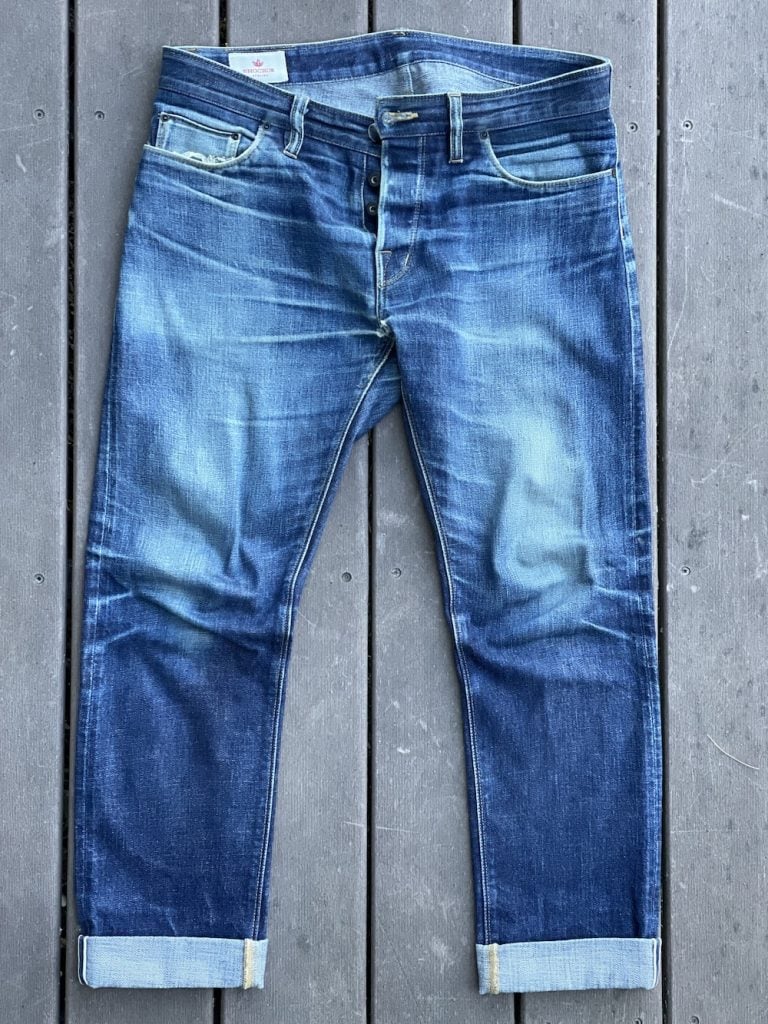
1. Best Overall: Shockoe Atelier
- Small, family-owned business from Richmond, Virginia
- Free lifetime repairs on jeans
- Sources from world renowned mills like Vidalia Mills (USA), Collect Mills (Japan), Candiani (Italy)
- Great value, with many pairs under $250
Cut and sewn in Virginia, each jean takes 10 times longer to make than the average pair, and has a lifetime repair guarantee. Use "STRIDEWISE" at checkout for 10% off.
My favorite brand for selvedge jeans is Shockoe Atelier, and here’s why.
Unlike some big conglomerates in this space, Shockoe Atelier is a small, family-run business in Richmond, Virginia.
Anthony Lupesco founded it with a deep commitment to the notion of jeans as your daily companion, sharing your adventures and expressing the way you’ve worn them.
Further Reading
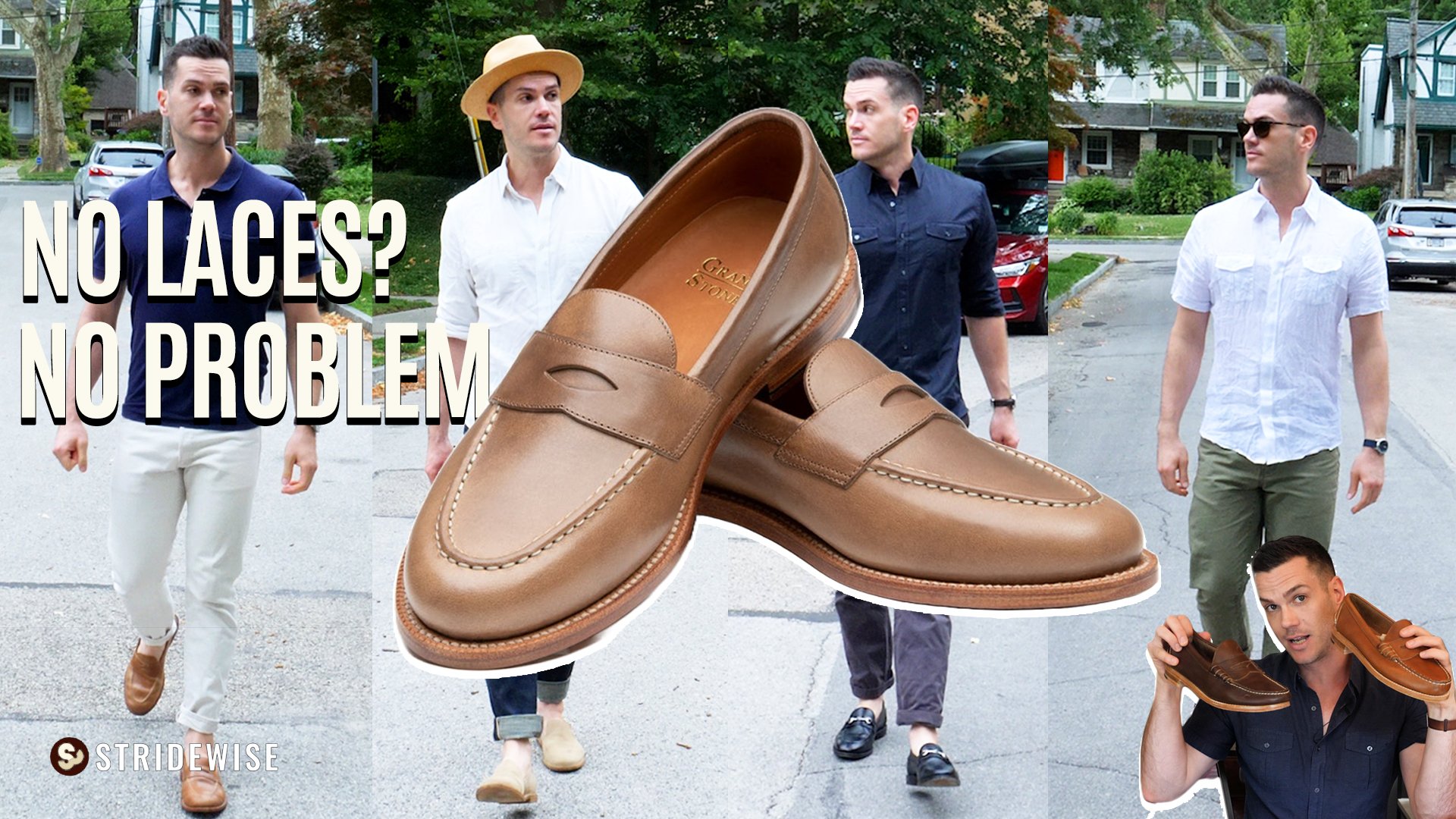
10 Best Loafers For Men | Dressy, Chunky, Causal, & More
Looking for a great pair of loafers to pair with your selvedge denim for a well-put-together fall look?
Learn more →
Shockoe Atelier Selvedge Jeans Highlights
To that end, he wants them to last as long as possible, offering free lifetime repairs on all his jeans — a significant value add for customers.
Because of that warranty, it makes business sense to craft premium denim as sturdily as possible so you won’t need to send them back. So there are many touches that make them unusually durable: pocket rivets to keep them from pulling away, tough pocket lining to keep keys from poking through, leather-backed copper rivets to make them easier to repair when they need to, and more that we outline in our complete Shockoe Atelier review.
Yet for such a small operation, Shockoe Atelier has an impressive range of fits, fabrics, and apparel, including seasonal offerings like linen selvedge and ripstop fatigues. They’ve clearly done their homework when sourcing, making jeans from world renowned mills like Vidalia in the United States, Collect Mills in Japan, and Candiani in Italy, a rap sheet even the most discerning denimhead will approve of.
Their Japanese Kojima denim is the flagship product, and we break down a years-old pair in the video above. Kojima is comfortable and classic while having enough character and irregularities to please longtime and newcomer fans of selvedge alike.
Finally (and above all for a lot of guys), their pricing is very fair for the quality they offer. Given everything I’ve said, seasoned shoppers would assume their jeans cost well over $300, but their Kojimas are currently $275, and many of their models, including the black and gray selvedge, are under $250. This exceptional value is what really elevated them to the number one spot, taking them from great to fantastic.
Plus, after falling for Shockoe, I convinced them to get you a discount code for 10% off. Enter “STRIDEWISE” at checkout!
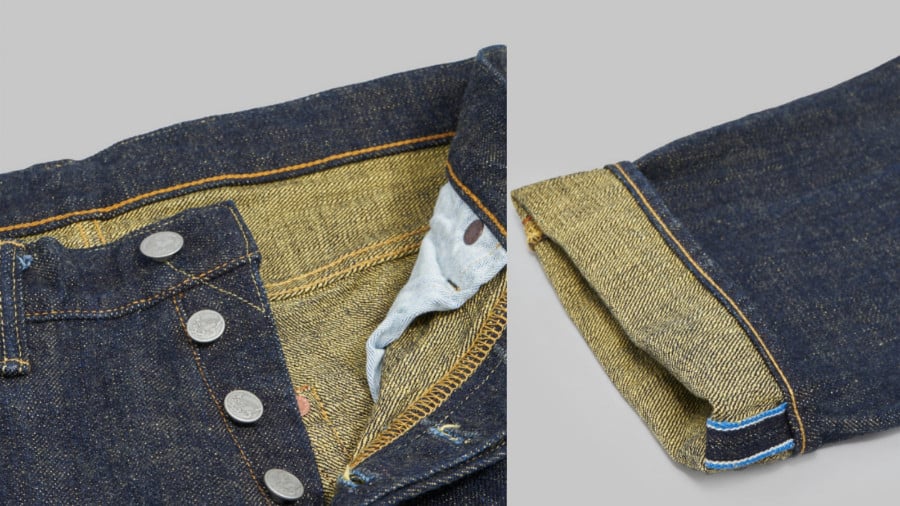
Best Japanese Denim: Tanuki
- Japanese brand with a modern streetwear, “post heritage” approach
- Experiments with fabric dyes like black bean, saffron, turmeric, and sumi ink
- Limited-edition products and fabrics
- Collaborations with brands like Oni
With an array of inventive fabrics and dyes that have included sumi ink, turmeric, and black beans, Tanuki's blend of heritage and streetwear makes it uniquely appealing.
If you’re willing to spend a bit more, but not bonkers prices, these completely Japan-woven-cut-and-sewn jeans mostly fall in the $300 to $350 range. Tanuki is a distinctly Japanese brand that has earned a devoted following on Reddit and other raw selvedge denim forums for its innovative yet subtly executed fabric experimentation.
Tanuki Highlights
Just about everything they offer is limited edition, so it’s hard to say exactly what you’ll find on offer when you visit their store — but we can guarantee it’ll be cool. Fabrics have included denim dyed with saffron and turmeric (producing more golden fades), black beans for a rich and steely blue, traditional sumi for inky blacks, and agonizingly hand dipped aizome on an awe-inspiring $660 pair we tried.
Unlike some companies that painstakingly recreate vintage fabrics and fits, Tanuki adopts a more modern, streetwear-inspired approach to their brand, comfortably experimenting with unique dyeing techniques without going over the top with comically eye-catching blue jeans. It’s a balance that sits just right with guys looking for unique but not cartoonish apparel. (Hey, we love cartoony jeans too, we just think Tanuki will appeal to more guys.)
Additionally, they frequently collaborate with the secretive Oni Denim Co — I’ve got 21.5-ounce Secret Denim jeans from them that keep me toasty warm in New York winters.
On top of their simply wonderful approach to making clothes, a significant advantage they have in the market is that a native English speaker (Markus) handles their marketing and Instagram. This makes getting information, making inquiries, and buying online easier than most Japanese brands.
A lack of transparency and communication is one of the most frustrating things about selvedge denim, and it’s not a problem with Tanuki. For this, and their excellent products, they deserve the podium.
Widest Variety: Naked & Famous
- Wide variety of innovative denim fabrics
- Famous for extreme fabric choices like glow-in-the-dark, scratch-and-sniff, and 32-ounce jeans
- Good price-to-quality ratio due to Japan-Canada trade relations
- Inventive, limited offerings every season
One of the largest and most beloved brands in selvedge, Naked & Famous have dozens of jeans on offer from daily drivers to fabrics made with milk, elastane, rainbow wefts, scratch-n-sniff, and more.
We’ve covered classic Americana-style selvedge and more modern, expertly dyed Japanese selvedge from Japan. Up next, we couldn’t write this list without one of the biggest and probably the most beloved selvedge brand: Naked & Famous.
They have a store here in New York where I’ve done a million videos and I’ve even visited their headquarters in Montreal.
Naked & Famous Highlights
Their basic raw denim is called Left Hand Twill, but they’re willing to create just about anything. Tanuki may have skill and subtlety in their fabrics, but Naked & Famous’s CEO is nicknamed The Willy Wonka of Denim for good reason.
This is a company that loves the superlative. Over the years, I’ve seen jeans that are glow-in-the-dark, scratch-and-sniff, made with possum hair, with milk, and even ones that fade to rainbow colors. They’re particularly famous for their 32-ounce denim, about three times thicker than you’d find in mall brands, and I’ve even handled a prototype of their heavyweight denim (40-ounce jeans!). (The loom struggled hard to make it, so no one is sure if it will ever come to market.)
Regardless, they offer good prices, many conversation-starting fabrics, and every season sees an array of fun limited editions.
While they often have just three fits, some fabrics come in up to six, and Naked & Famous has become very widespread because their jeans are accessible, cool, and wearable. What else would you want from jeans?
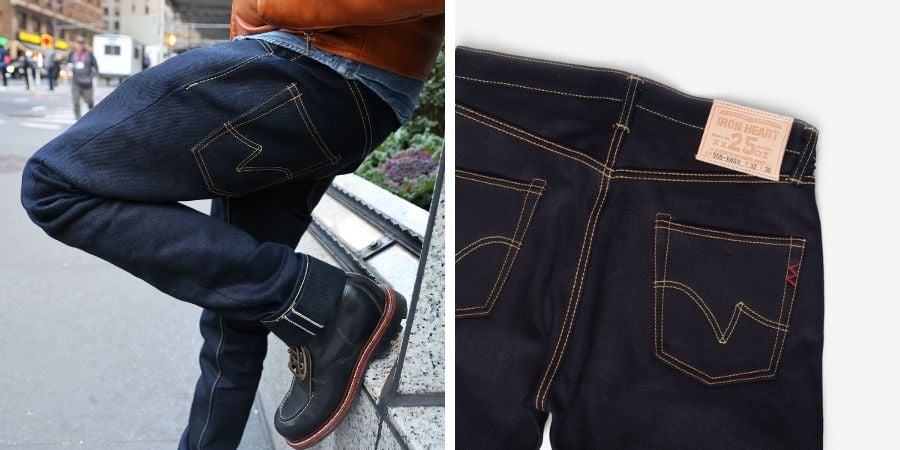
Toughest Jeans: Iron Heart Denim
- Smooth, consistent selvedge denim (that’s slow to fade)
- 5 available fits
- Famous for their heavy 25-ounce denim
- Ideal for pairing with character-rich shirts or jackets
Renowned as some of the toughest, best made, best fading denim on Earth, expect a uniform look and unbeatable toughness.
In the world of selvedge denim, you typically have two camps (though there’s plenty of crossover). In one camp, you have the guys who love knotty, slubby, neppy, hairy fabrics like you’ll find at Naked & Famous and Tanuki.
The other camp just wants classic-looking denim that’s as high quality as possible. These guys always wind up at Iron Heart.
Iron Heart Highlights
Iron Heart jeans are very smooth, consistent, and uniform in appearance, selling some of the most flawlessly perfect selvedge you’ll find. They’ve rightfully earned a devoted cult following for their very smooth and, therefore, very comfortable fabrics.
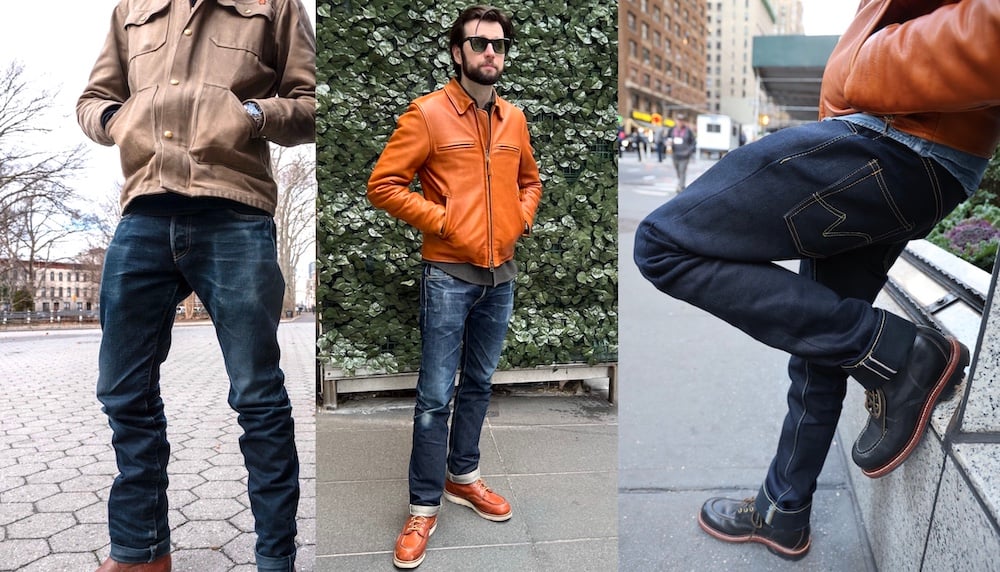
This uniformity is a feat unto itself when you consider that the irregularity in fabrics so many denimheads love stems from the fact they’re made on chattering antique shuttle looms that are known for all the imperfections they produce. While some might think this uniformity could lead to boring fades, Troy’s pairs clearly show that your jeans will look beautifully well-loved as time goes on.
Iron Heart jeans are expertly dense, uniformly stitched, and have the kind of attention to detail and under-the-radar simplicity that appeals to denimheads worldwide. (And that simplicity also makes them ideal for matching with more textured or patterned tops.)
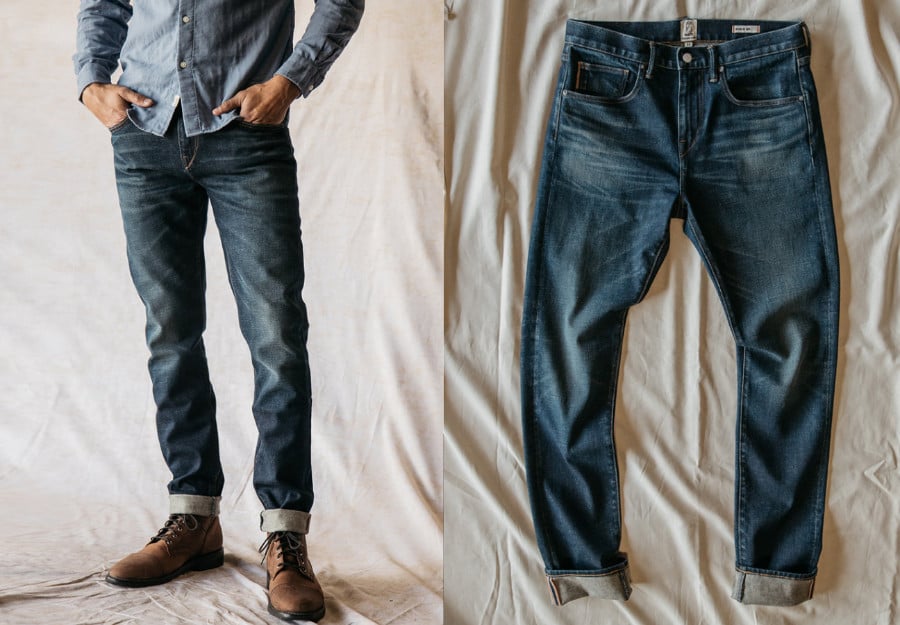
Best Stretch Denim: Hiroshi Kato
- Fabric from Japan, made in Los Angeles
- 4% polyurethane for stretchiness
- Some voodoo magic keeps them from losing shape like some stretch denim
- Weight ranges from 10.5 to 17 ounces
- 4 fit options: Tapered, skinny, slim, straight jeans
Kato has made a name for themselves with stretch denim that's still selvedge, still wears well, and doesn't stretch out.
The best stretch denim jeans, according to a broad consensus, is Hiroshi Kato. They make their industry leading stretch jeans from denim woven on shuttle looms in Japan that’s then cut and sewn in Los Angeles.
It’s true that some enthusiasts consider stretch jeans heresy due to their love of the vintage element of selvedge. Many buy it because it’s the way jeans used to be made before projectile looms and mass production — a time when there were no polyurethane pants.
However, while I’ve yet to find a stretch denim that breathes as well as cotton, I can’t deny its superior comfort for travel, watching a movie, or… maybe anything.
That’s why most (though not all) brands include some stretch denim in their product lines. Despite the misgivings of traditionalists, stretch can still be woven on shuttle looms and still fade nicely.
Hiroshi Kato Highlights
While they have some 100% cotton jeans, Kato is a stretch selvedge brand, and there’s good reason for their success in the niche.
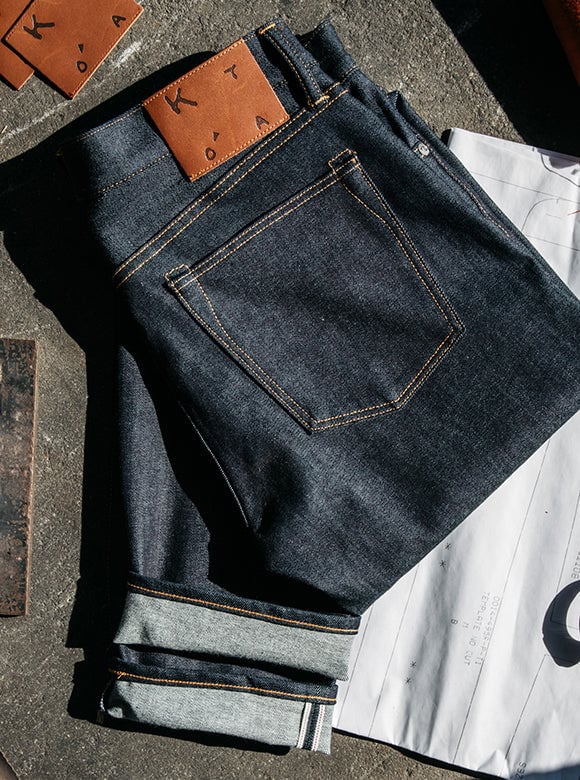
Their magic numbers are 96% cotton 4% polyurethane. That’s more than the typical 2% elastane found in popular stretchy trousers like Flint and Tinder’s 365 pants or Taylor Stitch’s Boss Duck. It’s remarkably stretchy; they feel like sweatpants, yet they somehow manage to keep their shape with wear. (That’s rare; Flint and Tinder’s stretch right out.) I spent all summer in my 10.5oz pair to make sure I could include them in this list.
Kato offers four fits: slim (“Pen”), skinny (“Needle”), straight (“Hammer”), and tapered (“Scissor”). Most of them lean slim, and I’m waiting for them to release a dedicated, relaxed, tapered fit because I have unusually large thighs. But I squat a lot and have a weird body — most guys will be able to find what they want with those standard four cuts.
While they used to be very pricy, these days, most of Kato’s jeans are under $250, which is very reasonable for the product you’re getting.
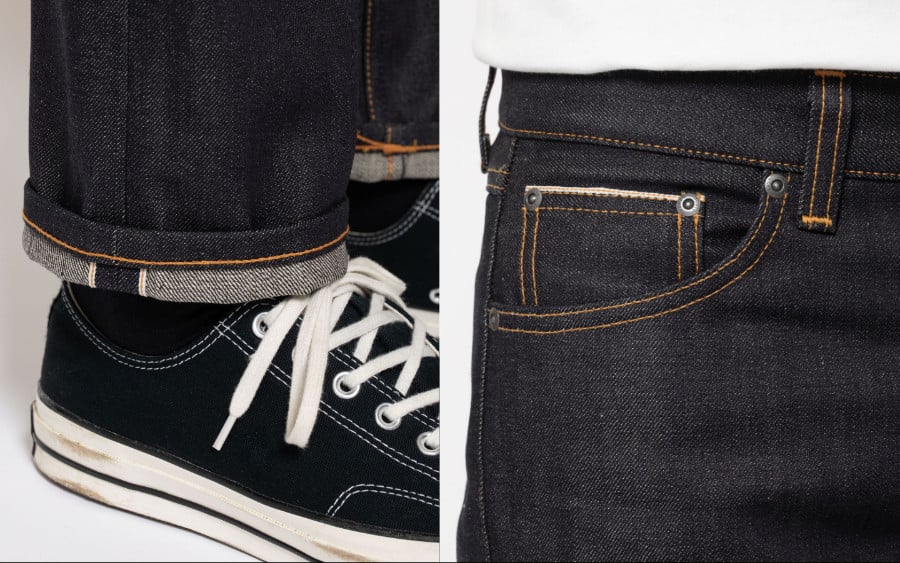
Best Fits: Nudie Jeans
- Made in Scandinavia with Japanese cotton
- Only uses organic cotton
- 9 fits available
- Very transparent supply chain
With a huge range of fits, only organic cotton, and the most transparent supply chain on Earth, Nudie deserves their spot at the top of the pecking order.
I just touched on how finding the right fit can sometimes be difficult; everyone’s body is different.
Nudie Jeans Highlights
And while Iron Heart does have a great reputation for how their jeans fit, Scandinavia’s Nudie Jeans offers a whopping nine fits to choose from. So if you’re particular about getting the perfect fit, they’re a great place to look. (Athletic guys, go with the Steady Eddie II.)
Most of their jeans are non-selvedge (fine if that’s what you’re after!) but they have a good array of the shuttle loom stuff that’s mostly under $300. Nudie may be the largest brand in the space (a turn off to some guys with a traditionalist bent), but they do a lot right and deserve the success.
Best Budget Selvedge: Brave Star
- Made in America, with some Japanese selvedge options available
- Great value; mostly under $250
- 6 fits available
- More traditional fabrics
No one knows how Brave Star manages so much US-made selvedge for under $200, but we're not complaining.
If saving cash is your biggest priority, there’s a lot to love about Brave Star. They’re made in America, the denim is all from the United States or Japan, and almost every pair is under $150, with some 25oz options for under $200.
Why do they cost so little? It’s true they don’t spend much on marketing, but the consensus is that the fits and fabrics aren’t super consistent between pairs, and the denim isn’t all that exciting or interesting if you’re keen for those super Japanese irregularities.
Brave Star Highlights
But many people love this brand. Not many people are make-or-break on a fabric’s bumpiness, and there’s no doubt the price makes any potential shortcomings worth it. Check out the video above to see how my 21oz pair faded after a few months, and decide for yourself!
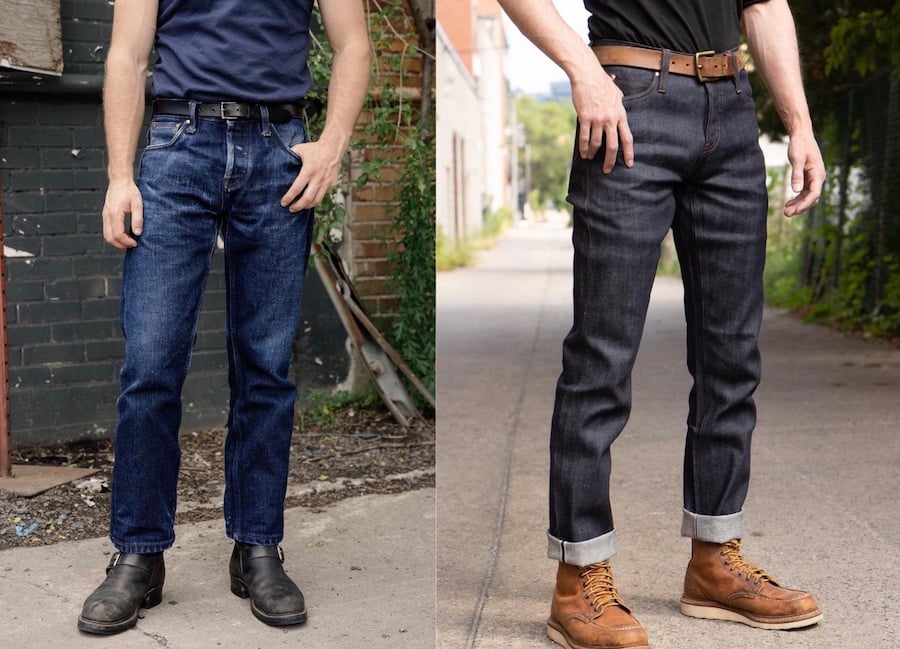
Runner Up for Best Budget: Unbranded
- Made in Macau
- 5 fits available
- Includes offerings with more character (eg “18oz Neppy Raw”) than Brave Star
- Quietly a sub-brand of Naked & Famous
These Macau-made jeans are surprisingly great quality, with offerings in both the plain-and-traditional and slubby-and-neppy categories for under $150.
When talking about the best value selvedge, there are guys who like the American-made angle of Brave Star and don’t mind that the quality control is a bit of a roll of the dice, and then there are guys who insist it’s Unbranded. So we included both of them.
Unbranded Highlights
You can get similar prices from both brands, and Unbranded has its own asterisks: they’re made in Macau, so you lose the USA-made and Japanese-made cachet of Brave Star. But you get some stuff in return: as a sub-brand of Naked & Famous, the quality control is better from pair to pair, and although they emphasize simple fabrics, they do have a few more Japanese style denims than Brave Star, like the Neppy Raw and the Slub Selvedge — both 18 ounces, both under $150. They sell some solid jackets we’ve reviewed, too.

Best Value Japanese Selvedge Denim: Japan Blue Jeans
- Made in Japan
- Same company that makes Momtaro
- High-quality fabric at a great price
- Around $200
The perfect starter denim for anyone interested in high-quality made in Japan denim.
COLLECT Mills founded Japan Blue in 2010 and JBJ (Japan Blue Jeans) they’re the same people behind Momotaro. So Japan Blue has tons of experience creating modern denim that combines heritage details with more modern cuts. You can get sillohettts from slim cut to baggy street-wear style jeans.
Japan Blue Jeans Highlights
JBJ’s makes affordable, classic raw denim jeans without hype or gimmicks in line with their motto, “material is the key factor to jeans.” And they do what’s on the tin by crafting durable denim in a wide range of fits, colors, and weights. This is the perfect brand for anyone just getting into raw or selvedge denim who wants high quality stuff.
What Is Selvedge Denim?
- Selvedge denim is woven on shuttle looms
- Signified by a colored selvedge ID running along the edge
- Creates a wider range of fabric textures
- Often thicker and has more (desirable) imperfections
Traditionally (like pre-1950s), denim was woven on shuttle looms that weaved the fabric in a way that made tidy self-finished edges we now call selvedge — from self-edge, from “self-finished edges.”
Selvedge IDs
You can spot them from the selvedge ID: different mills and brands use different colored threads woven along the self-finished edge. This ID is the most visible marker of selvedge jeans that you see when you cuff your jeans or sometimes on the back pockets or front pockets.
Shuttle Looms
Modern projectile looms make denim 10 times faster (so it’s much cheaper), and the ends of this fabric are frayed and loose without that ID.
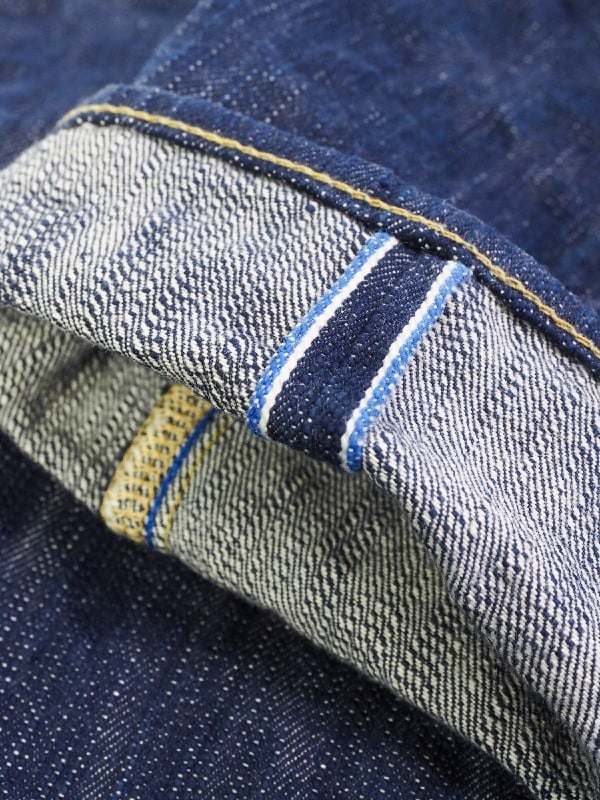
So, shuttle looms weave at a slower pace, put less tension on the yarn, and tolerate (or produce) more variations in the yarn, which many people prefer for the character it adds to the fabric.
Character
These are “flaws” that projectile looms help to eliminate, but in the same way, I love the flaws in the beanie my sister knit me. Many denim guys love the way those imperfections make their jeans unique and old-fashioned. Plus, they make for more unusual fades.
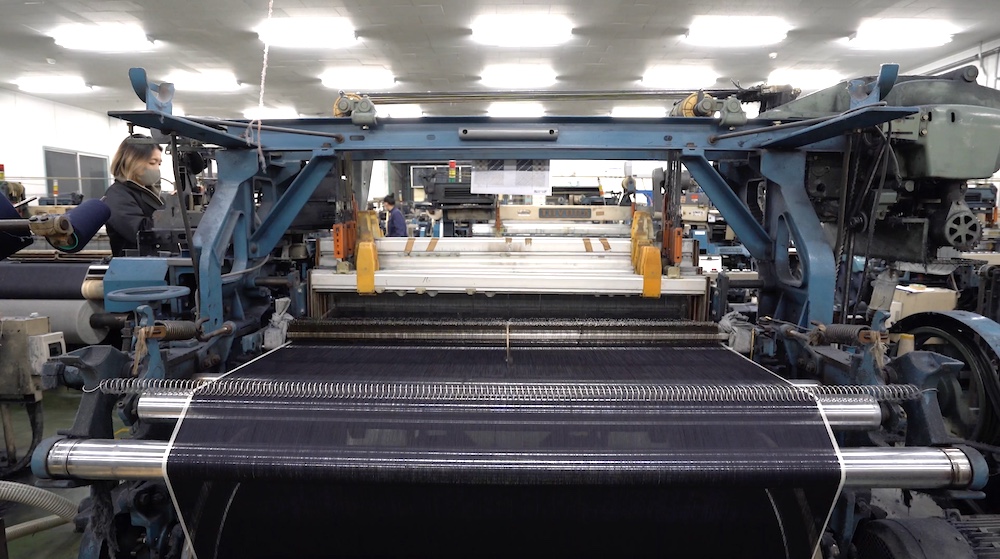
That’s “all” selvedge is: denim made on shuttle looms. It’s not by definition thicker or knottier, but it tends to be because that’s what the market tends to like. Even though, as mentioned, there are plenty of great selvedge brands that do very uniform denim, Iron Heart being the most notable example.
So selvedge is not inherently stronger or thicker than other denim, it just means it was made using traditional techniques.
[Related: The 4 Biggest Misconceptions About Raw Denim]
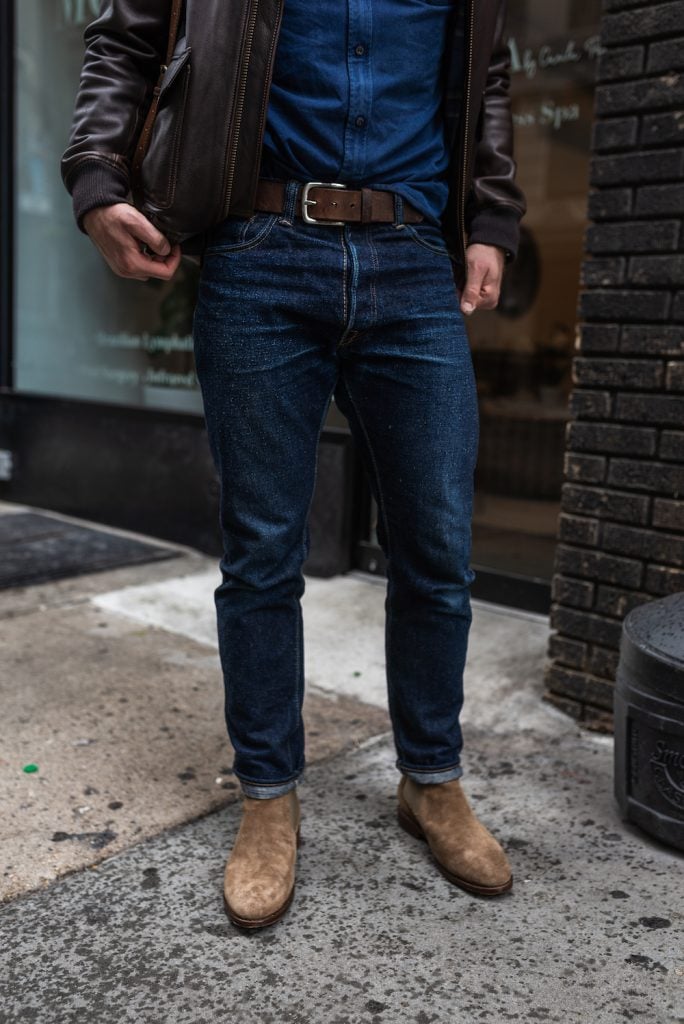
Selvedge Basics: A Jargon Glossary
There are entire subcultures based around denim that go way more into detail than we need to here, but there are a few basics to help you better understand the benefits of getting a nice pair of jeans.
Fabric Weight (What Does ‘Ounces’ Mean With Jeans?)
You’ll read a lot about denim weight in this article. Weight doesn’t refer to how heavy a pair of jeans are. It refers to the weight of one square yard of fabric. Naturally, lighter weight fabric is more breathable and comfortable in warmer weather. The heavier stuff gives a nice, protected, swaddled feeling in cooler weather. (Some like that armored feeling in summer too.)
Most jeans on Earth are 11 or 12 ounces per square yard. Some brands, like Naked & Famous, come out with summer weight jeans under 10 ounces, but a lot of guys gravitate to selvedge because of how different and sturdy the thicker ones feel. The best known is probably Iron Heart’s 25oz line, though Naked & Famous have a mythical 32oz pair. (It’s not often sold because it really strains the looms — and the knees of whoever breaks them in.)
Selvedge Fades
In the same way many guys prefer their boots once the leather has aged and the color has loosened up, denimheads consider their fades a badge of honor, a market of their commitment and love for this pair, a sign these pants truly are their well-loved daily companions.
You’ll notice not a lot of selvedge brands sell pre-faded jeans like you see at the mall. Selvedge fans like to start with raw, crisp, dark indigo and wear them hard so that the fades belong to them and reflect the journey they’ve had with them. There are countless forums and even competitions, like the Indigo Invitational, designed to get the best fades possible.
It’s a complicated topic, but the short version is more infrequent washing makes higher contrast fades, while regular washing makes them a bit more uniform. For more tips, check out the video above or its companion article: How to Fade Your Jeans.
Construction
Details like tucked belt loops, a cool leather patch, flies with self finished edges, and copper rivets at stress points add character and uniqueness to jeans. More expensive jeans (Iron Heart again) may have hidden rivets. In fact, riveted stress points are the defining factor that made Levi Strauss able to patent — nay, create — the first pair of jeans: it’s debatably what makes them jeans and not pants.
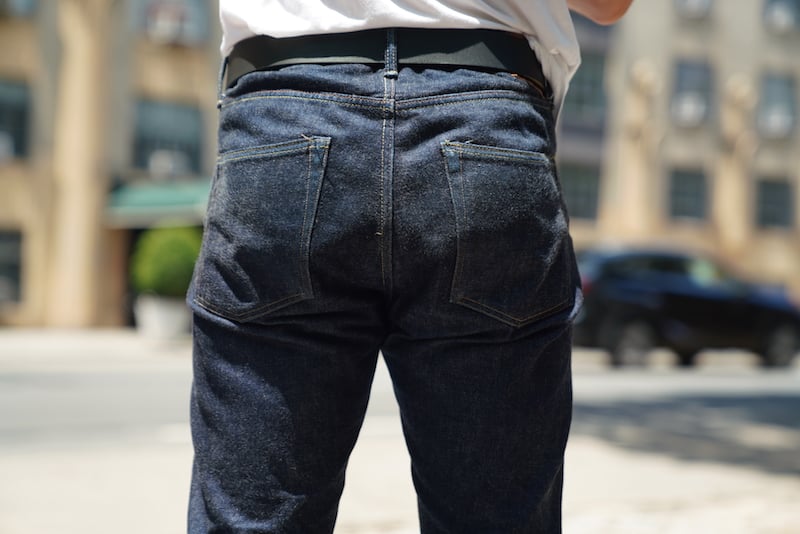
Wrapping Up
I hope this helps you find a pair of jeans that you love. That’s what all this is about. They’re the most common kind of casual pants, and, like high-end boots, they’re so durable that they eventually reflect the way you wear them and become more of a companion on your journey than a simple item in your wardrobe.
I’m a big proponent of buying fewer, higher quality items, and after wearing quality selvedge denim for a while, big box brands will feel more like tissue than jeans.
When we own something for a long time, we develop a relationship with it. This list, I know, will help you find jeans that will last as long as possible and be worthy of the closeness you’ll feel with them, on your legs, and in your heart.
Yes, that last line is corny as all hell. I only briefly hesitated before writing it.

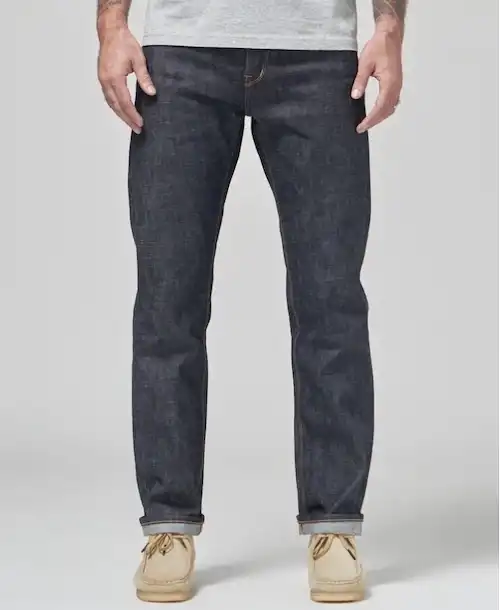
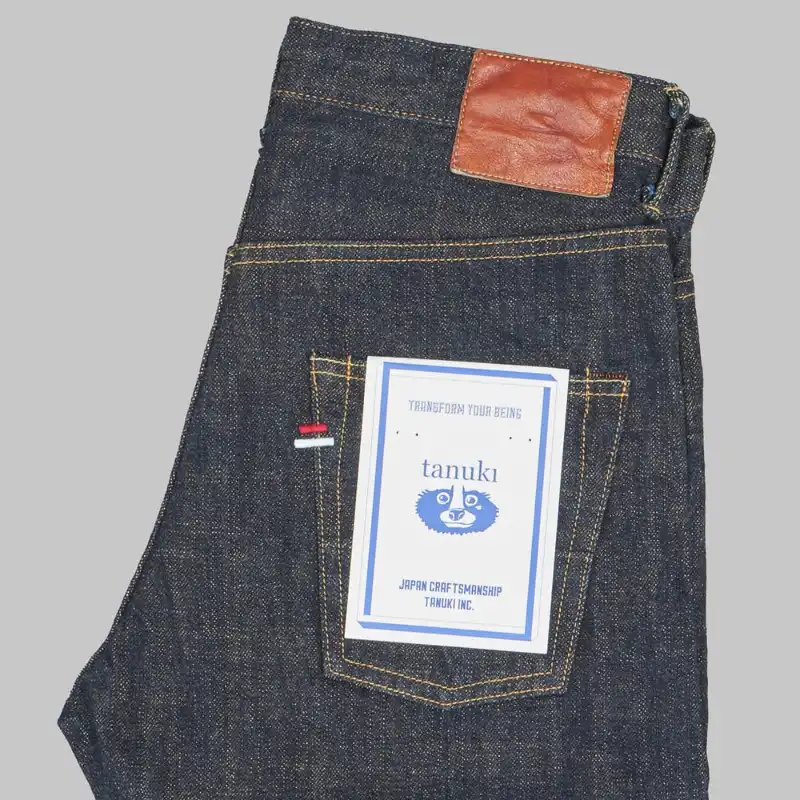
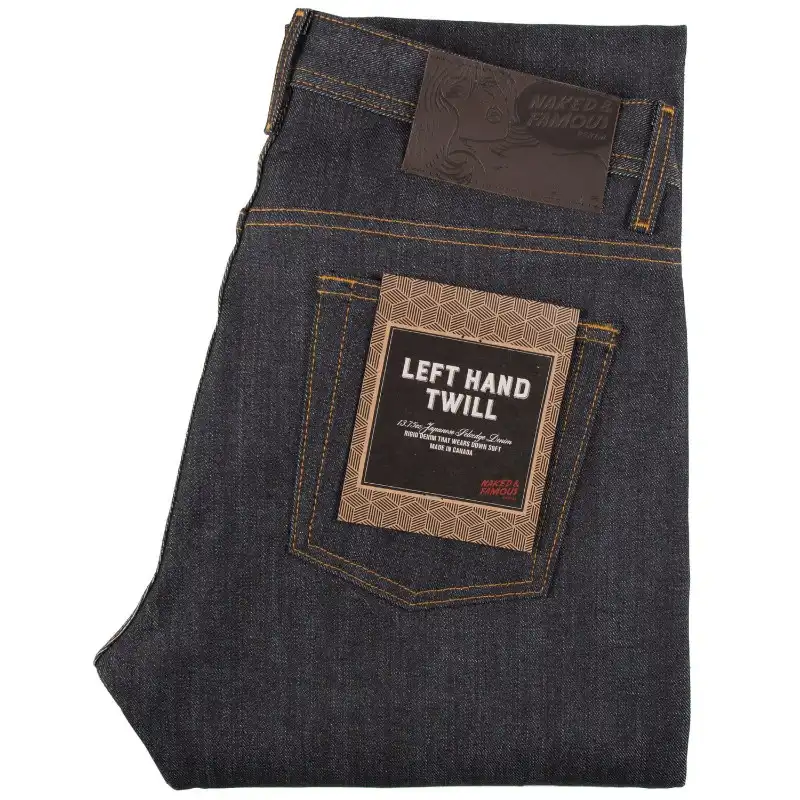

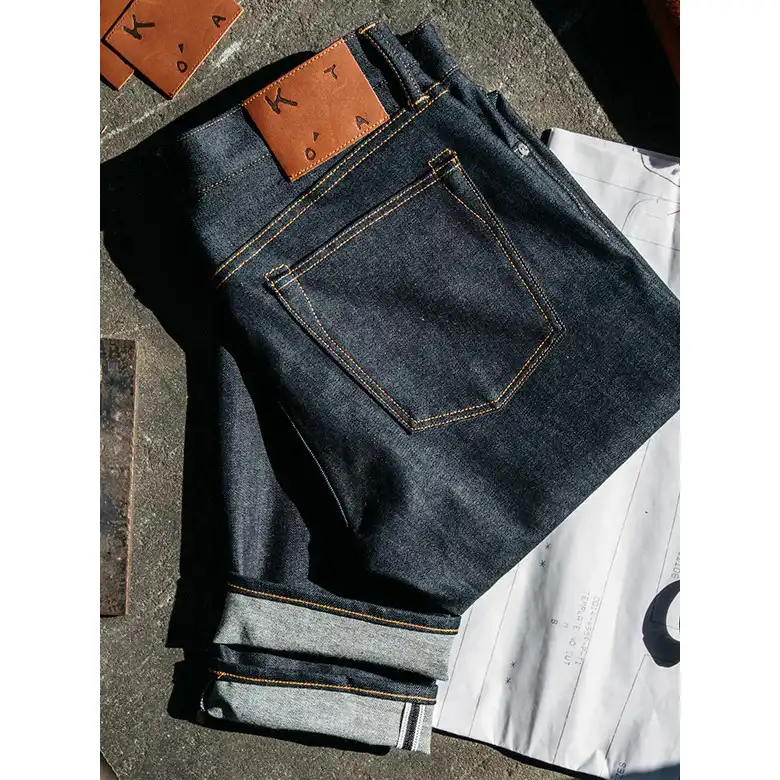
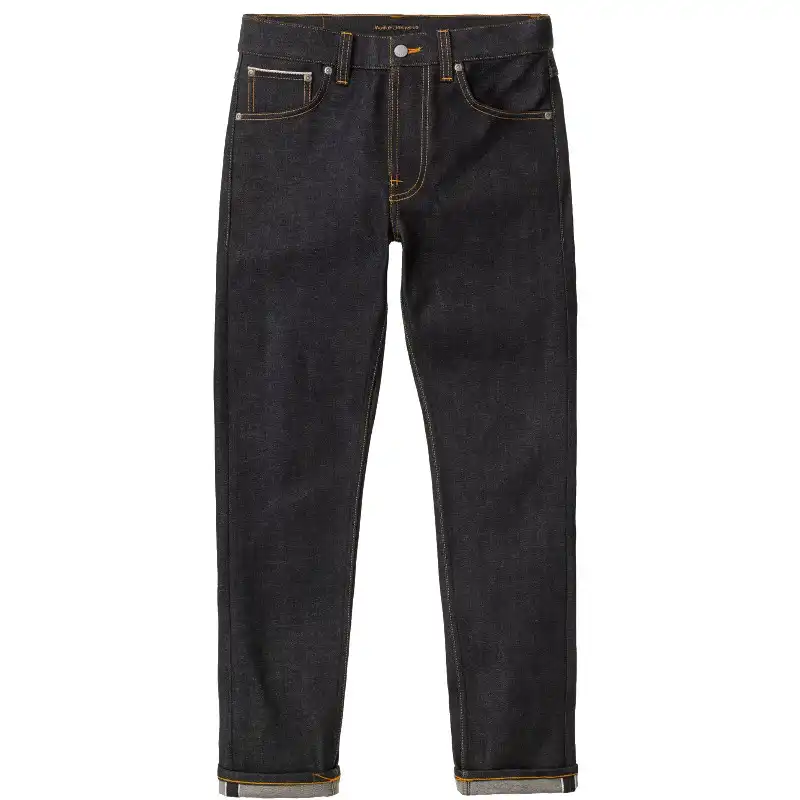
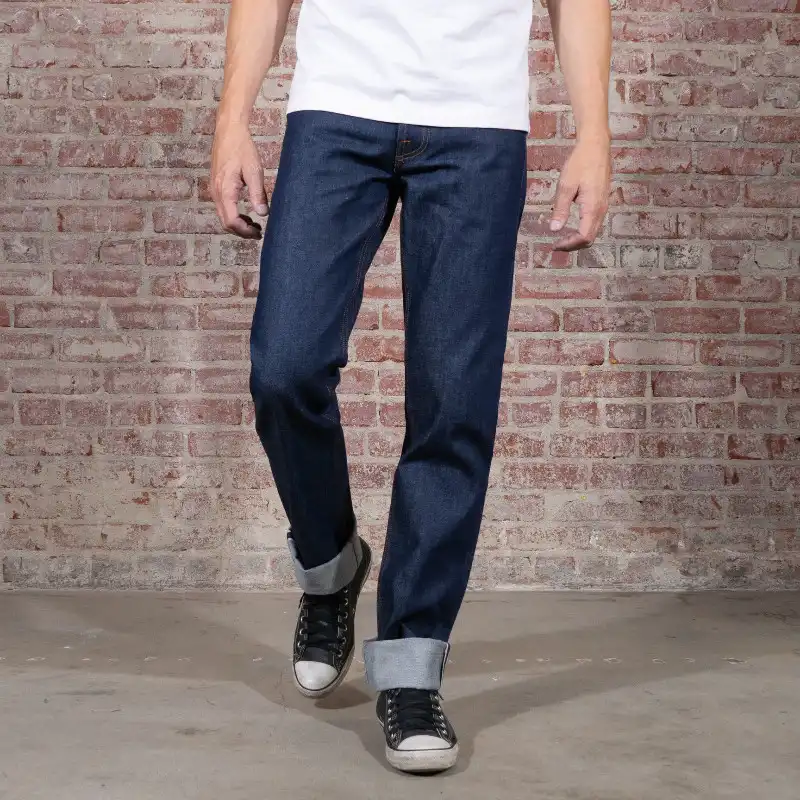
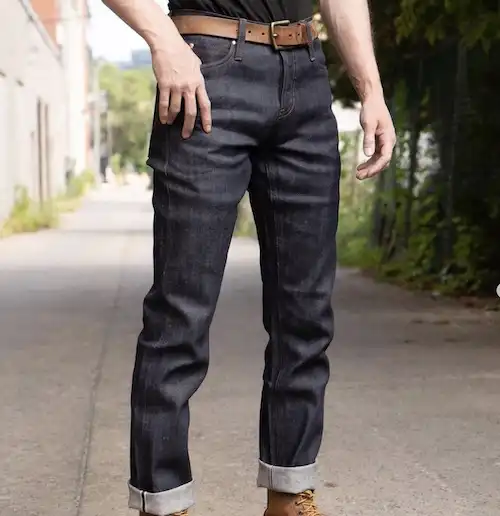
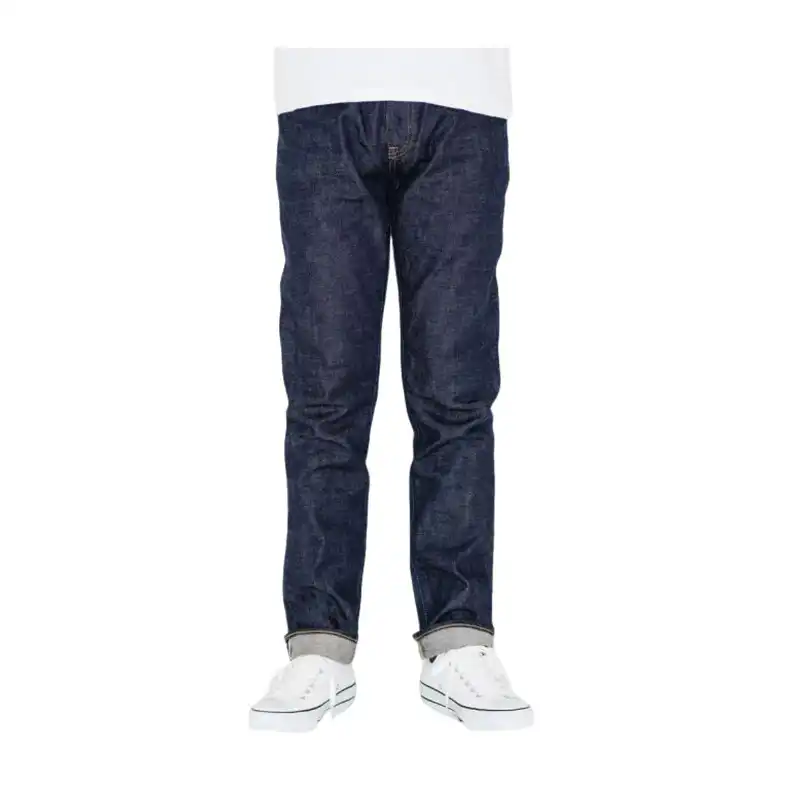
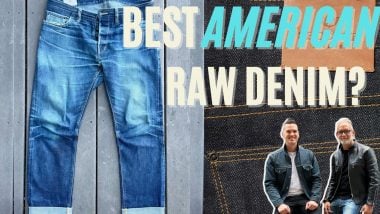

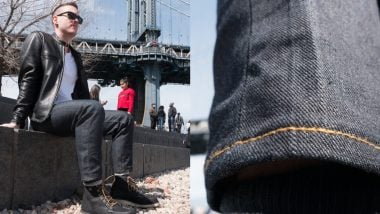
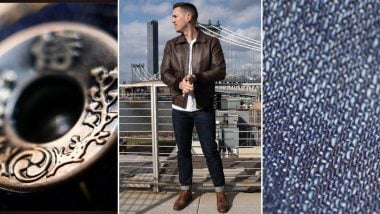
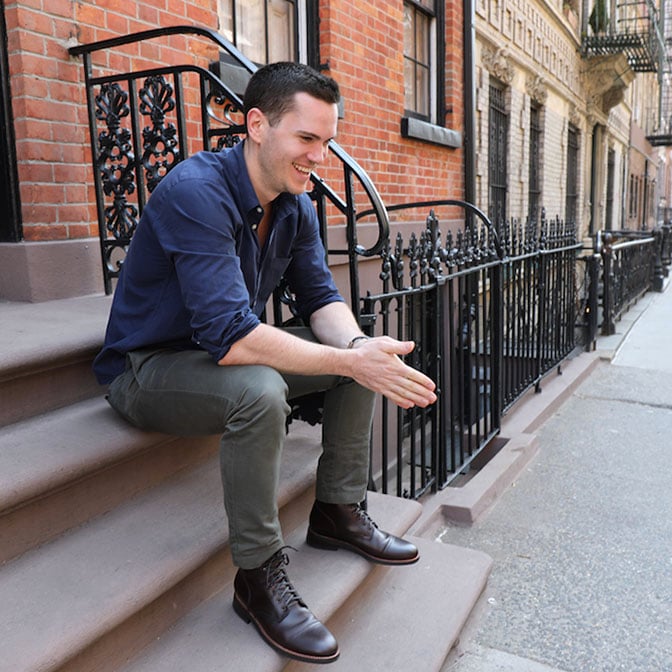
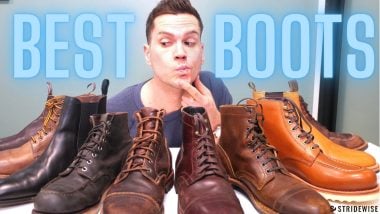
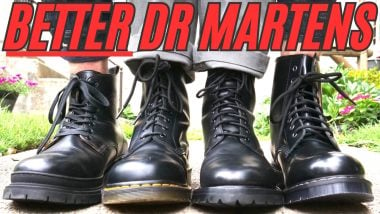

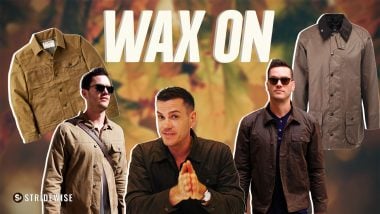
Join the Discussion